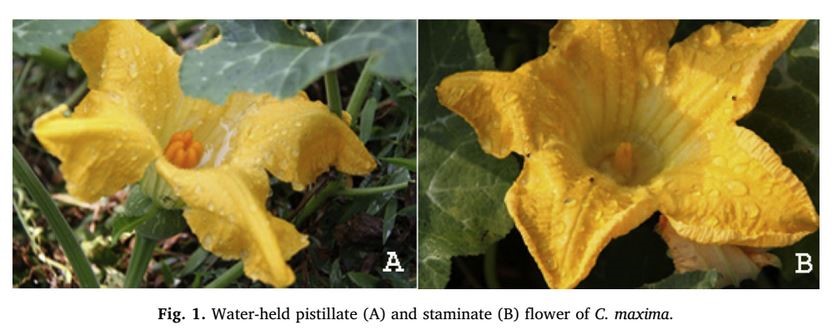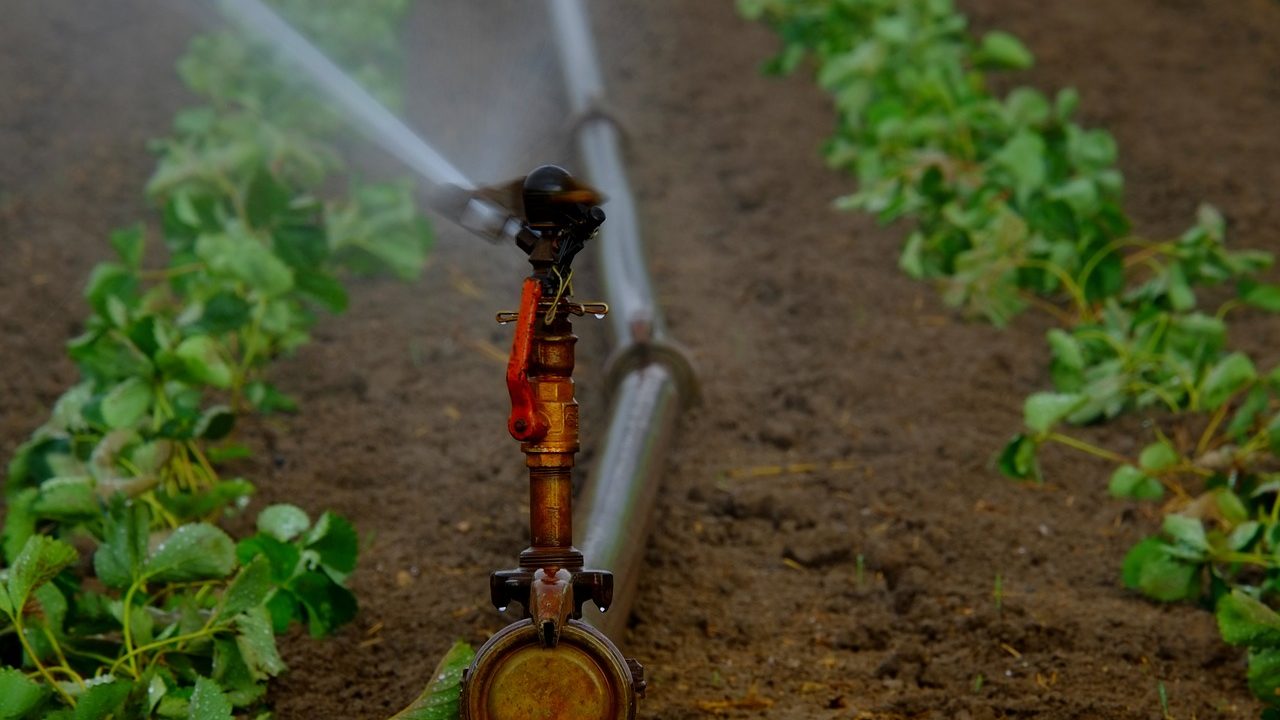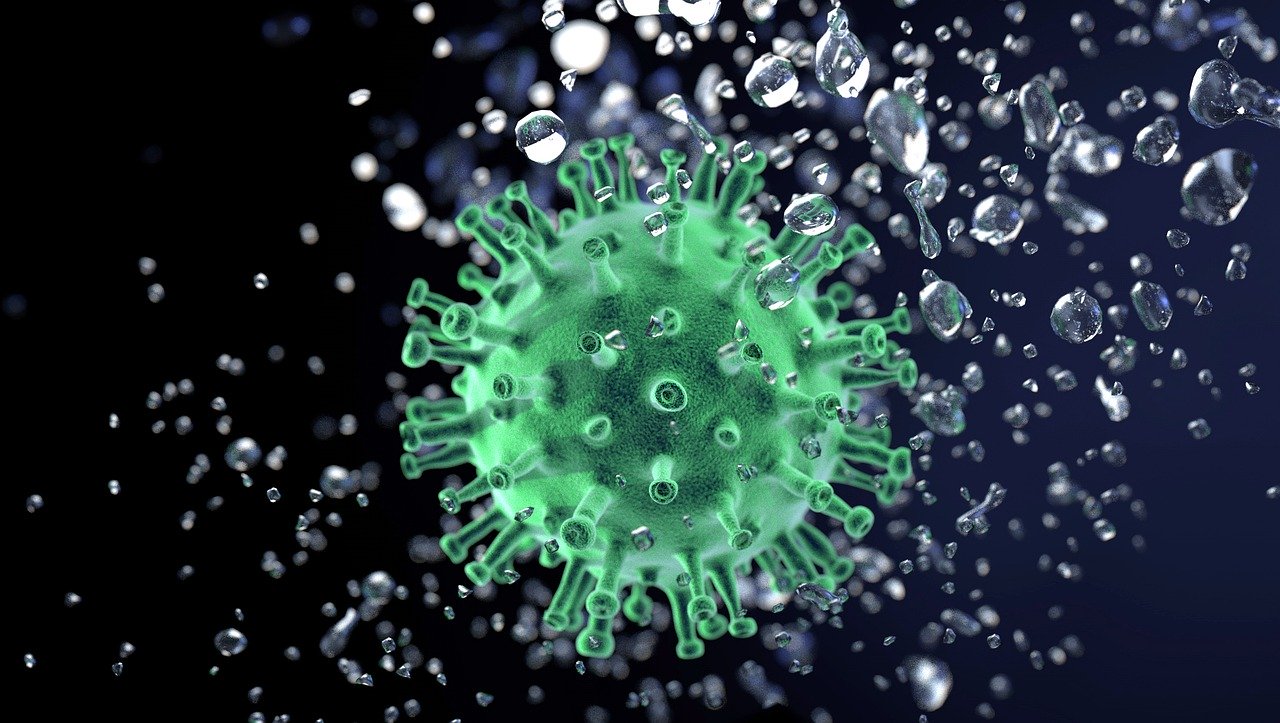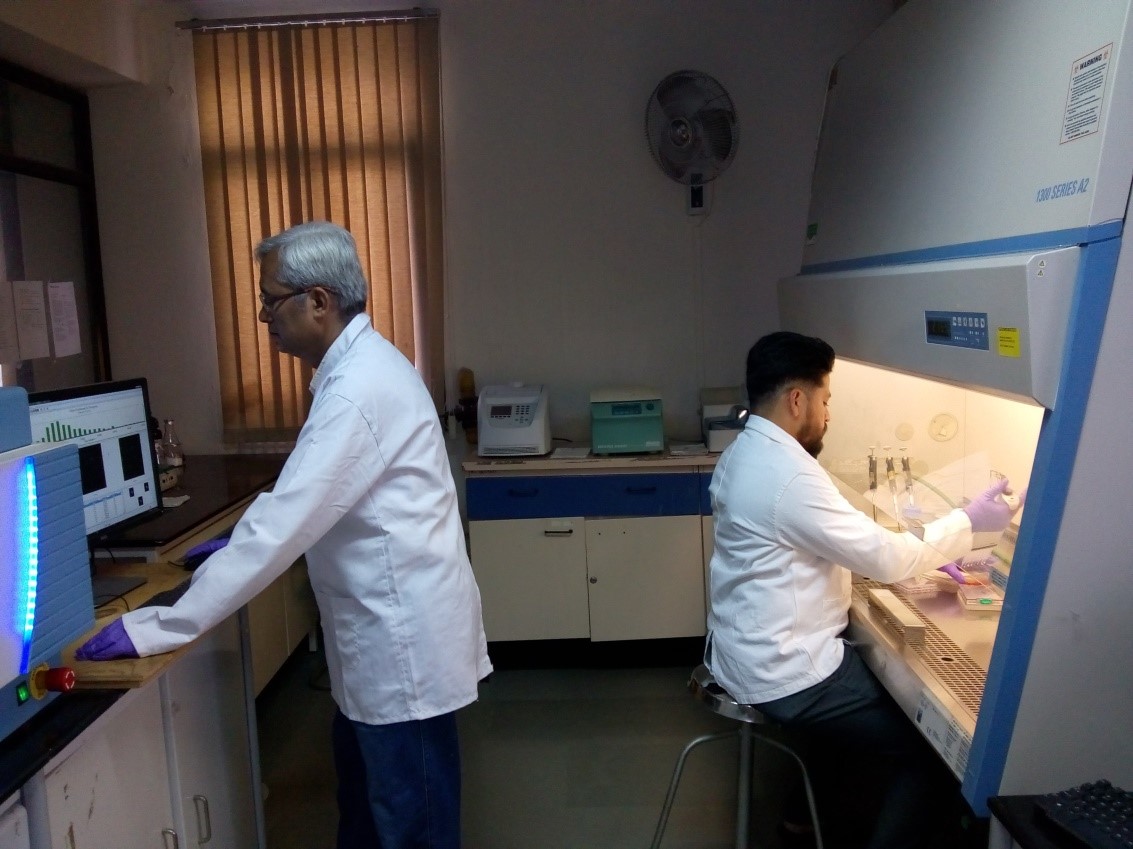Sprinkler irrigation is widely used for a number of crops. A new study has found that adopting overhead sprinkler irrigation may not be advisable for pumpkin cultivation as it could obstruct pollination of the plant and thus reduce fruit set and yield in the vegetable.

Pumpkin belongs to a group of plants called monoecious plants, which produce male and female flowers on the same plant. They usually depend upon insect pollinators for pollination and subsequent formation of fruits. Honeybees particularly play a vital role in pumpkin cultivation. It also needs a lot of water and experts recommend drip irrigation for better yield.
Researchers from the Central University of Kerala, who conducted the pilot-scale study, selected a cluster of male and female flower buds in the field and covered them with nets until they bloomed. Once the flowers bloomed and anthesis began, they poured water over one set of flowers and left the other settings untouched. On monitoring, they found that there was no difference in the number of bees visiting the two sets of flowers. However, the water-filled flowers did not develop into fruits.
Small growers in south India traditionally use pot water to irrigate pumpkin plants. The pulley water and pour it directly in seed pits, which is a laborious process and might also damage the vines if not done properly. Many growers have, therefore, shifted to pumps or overhead sprinklers to irrigate their fields. While hose pump irrigation damages the vines and the flowers due to the forceful discharge of water, the overhead sprinklers fill water inside the flower cups, so much so that the reproductive parts of both the staminate and pistillate flowers get immersed in the water.
Researchers said that the problem arose because of the shape and the architecture of the female flowers of the plant. Female pumpkin flowers are cup-shaped and this retained the water, creating a barrier for the pollinators to reach their reproductive parts.
Asked about the implication of the study for other crops, the lead author Dr. Palatty Allesh Sinu said the findings can’t be generalized and extended to other plants. “The study throws light on one of the parameters that affect the pollinators of pumpkin. There are many other factors ensuring pollination success. So, we can’t generalize the results for other crops,” Dr. Sinu told India Science Wire.
The researchers observed in their study that for large pumpkin fields, drip irrigation might be an efficient substitute for overhead sprinkler irrigation during the flowering phase of pumpkin. “We expect that our study will generate interest among pollination biologists around the world to further test the efficiency of overhead sprinkler irrigation on other wild pollinators,” the researchers said.
The findings of the study published in the journal Scientia Horticulturae. The research team included A.R. Pooja and K. Aneha from the Central University of Kerala. The study was supported by the Science Engineering Research Board (SERB) of the Department of Science and Technology (DST). (ISW)
If you liked this article, then please subscribe to our YouTube Channel for the latest Science & Tech news. You can also find us on Twitter & Facebook.



